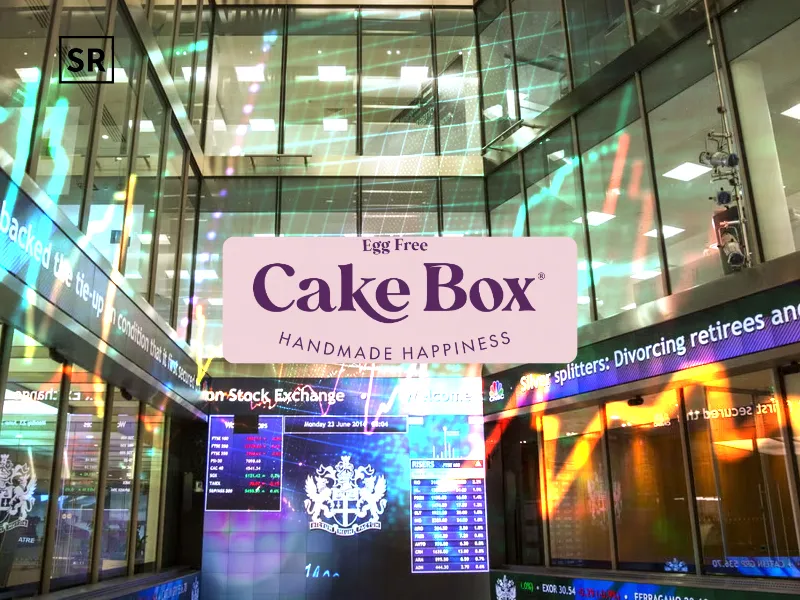
Moving to Canada requires more than just meeting visa requirements it also involves proving your ability to communicate effectively in one of the country’s official languages: English or French. Language proficiency plays a critical role in the immigration process as it reflects your ability to integrate into Canadian society, adapt to daily life and succeed in the workplace.
To measure these skills, Canada uses the Canadian Language Benchmarks (CLB), which set standardized levels for reading, writing, listening, and speaking. Achieving CLB Level 7 in French is particularly valuable, as it can open doors to immigration programs, increase your eligibility for permanent residency and even improve your score in the Express Entry system. For many applicants, this level demonstrates a strong, functional command of French—enough to communicate with confidence in both personal and professional settings.
If French is your chosen language, aiming for CLB 7 can greatly enhance your chances of success. This guide will walk you through what CLB 7 means, why it matters for immigration, and practical ways to prepare for it. With the right strategy, focused practice and dedication, you can achieve the required level and bring yourself closer to your Canadian dream.
CLB Level 7 In French
The Canadian Language Benchmarks (CLB) and their French equivalent, the Niveaux de compétence linguistique canadiens (NCLC), are official systems used to evaluate language proficiency for immigration to Canada. They measure your ability to listen, speak, read, and write in French, helping Immigration, Refugees and Citizenship Canada (IRCC) determine how well you can communicate in everyday and professional situations.
RECOMMENDED FOR YOU

Plus500 Share Price Prediction 2025, 2026 to 2030 – Expert Analysis
Team SR
Jul 28, 2025
Both CLB and NCLC are divided into 12 levels, starting from Level 1 for beginners to Level 12 for advanced proficiency. Reaching CLB/NCLC Level 7 in French demonstrates that you have a solid, functional grasp of the language. At this level, you can follow conversations, express ideas clearly, and understand moderately complex texts.
For immigration purposes, achieving CLB 7 in French is highly valuable. It can increase your eligibility for programs such as Express Entry or provincial nominations and significantly strengthen your overall application.
What Do CLB Levels Mean?
The Canadian Language Benchmarks (CLB) measure English or French skills from levels 1 to 12. They assess listening, speaking, reading, and writing abilities needed for everyday life, work, and study in Canada, helping newcomers and learners understand their language proficiency for integration and success.The CLB is divided into three main stages.
Overview of what each stage and level represents:
Stage I - Basic Language Skills (CLB 1–4)
Represents basic language skills, enabling learners to handle everyday needs like shopping, greeting people, asking simple questions or completing basic forms. At this stage, communication is limited but functional, helping individuals manage routine situations and interact in simple, familiar contexts with short phrases and basic vocabulary.
Stage II - Intermediate Language Skills (CLB 5–8)
Represents intermediate language proficiency, enabling individuals to interact confidently in most social situations and certain workplace environments. At this level, learners can write short emails, read and understand work-related documents, follow instructions and participate in everyday conversations with greater ease. They can express opinions, share ideas and engage in discussions on familiar topics. While their language use may not yet be advanced they are able to manage a wide range of daily tasks and professional interactions with clarity. This stage builds a strong foundation for progressing toward advanced fluency and handling more complex communication requirements.
Stage III - Advanced Language Skills (CLB 9–12)
Indicates advanced language proficiency where learners can manage professional, academic and complex communication with confidence and precision. At this stage, individuals can follow in-depth discussions, interpret and analyze advanced texts and produce professional or academic writing with accuracy and clarity. Their communication demonstrates fluency, adaptability and strong comprehension across diverse contexts. These levels reflect readiness for demanding workplace tasks higher education and specialized communication needs. Collectively, the CLB levels form a comprehensive framework for assessing language skills and are commonly applied in Canada for immigration, education, and employment purposes, ensuring a standardized measure of linguistic competence.
How Long Does It Take To Achieve CLB/ NCLC 7 In French?
Reaching a CLB 7 score in French requires both consistency and a well-structured study plan. On average, it takes 9 months to 1 year of dedicated practice to achieve this level. Learners are encouraged to track their progress around the nine-month mark and assess whether they need an extra month or two before attempting the TEF Canada exam. This careful pacing ensures readiness and reduces the chances of unnecessary retakes.
Language learning at this level demands regular practice, repetition, and steady retention of skills. CLB 7 in French reflects the ability to function effectively in work, academic and everyday contexts, making it a significant accomplishment within a relatively short time frame. Achieving this score demonstrates strong listening, speaking, reading, and writing abilities, all of which are critical for professional and personal success in Canada.
A realistic timeline, discipline, and commitment are key to reaching this milestone. More importantly, a CLB 7 score is a vital requirement for the Canadian Permanent Residency (PR) application offering applicants valuable points that can make a decisive difference in eligibility. Beyond immigration, this achievement also opens pathways for broader career growth, education and integration into Canadian society.
For learners aspiring to attain CLB 7, Kochiva offers specialized training programs designed to support every stage of the journey. With structured lessons, expert guidance and personalized practice, these programs help students stay on track, ensuring they gain both confidence and competence in French to successfully achieve their goals.
Benefits Of Achieving CLB 7 In French
Achieving CLB 7 in French boosts your CRS score, opens eligibility for more immigration programs, enhances bilingual job opportunities, supports integration into French-speaking communities, and demonstrates strong communication skills. It’s a valuable milestone for career growth, academic pursuits and securing Canadian Permanent Residency.
Increase CRS Score
One of the most immediate advantages of reaching CLB 7 in French is the boost it gives to your Express Entry Comprehensive Ranking System (CRS) score. By achieving this level, candidates can earn an additional 22 to 24 CRS points. For many applicants, this can make the difference between receiving an Invitation to Apply (ITA) quickly or waiting longer in the pool. Furthermore, if you are already proficient in English, bilingualism brings even more rewards. You can earn up to 50 extra points for demonstrating strong skills in both of Canada’s official languages. In a competitive immigration system where every point counts, this advantage cannot be overstated.
Qualify for More Programs
Another major benefit of reaching CLB 7 is that it opens doors to more immigration programs. While English proficiency alone is valuable, many immigration streams place a high priority on applicants who are skilled in French. Programs such as the Federal Skilled Worker Program, various Provincial Nominee Programs (PNPs), and the Francophone Community Immigration Pilots often require or strongly prefer candidates with French at CLB 7 or higher. In fact, some provinces specifically target French-speaking candidates to strengthen their bilingual communities. This means that by achieving CLB 7 you are not only improving your CRS score but also widening the range of immigration pathways available to you.
Easier Integration in Canada
Language is one of the most powerful tools for successful settlement in a new country. By reaching CLB 7 in French, you equip yourself with the ability to integrate more easily into Canada’s bilingual environment. Provinces such as Quebec, New Brunswick, and regions like Ottawa place strong cultural and professional value on French. Having the language skills to live, work, and interact in these communities will make your transition much smoother. Moreover, employers in both the public and private sectors often prefer bilingual candidates. From government services to multinational companies, being fluent in French gives you access to a wider range of job opportunities, career growth and professional networks.
Prove Communication Skills
Finally, achieving CLB 7 is proof of your ability to handle complex communication tasks. At this level you can manage professional conversations, write clear and structured reports, and understand advanced documents. This is highly valued by both employers and immigration officers as it demonstrates that you are ready to thrive in a professional environment. Strong communication skills not only help you get your permanent residency but also ensure long-term success in Canada.
Enhances Job Prospects
French language proficiency is highly valued in Canada’s labor market. Public sector roles, government jobs and positions in customer service, healthcare, and education often require or prefer bilingual candidates. With CLB 7 in French you can confidently apply for such roles and stand out to employers. Additionally, multinational companies in Canada that work with Francophone clients or global markets consider bilingualism a huge asset. Thus, CLB 7 not only increases your employability but also positions you for career advancement and higher salaries.
Is CLB 7 in French Difficult?
Achieving CLB 7 in French may seem challenging at first, but with the right approach and preparation it is a very attainable goal. At this level, learners are expected to communicate effectively in most everyday situations and handle common workplace tasks in French. This includes understanding conversations, following instructions, writing short reports or emails, and reading professional documents with accuracy. To succeed, you need a strong foundation in grammar, vocabulary, listening comprehension, and writing skills.
Reaching CLB 7 requires consistent effort and deliberate practice. For learners already at an intermediate level of French, it becomes much easier to progress with proper focus and guidance. The key lies in adopting a structured study plan that balances all aspects of the language—listening, speaking, reading, and writing—while also allowing regular exposure to authentic French materials like news articles, podcasts, or workplace documents.
Speaking practice is especially important. Engaging in daily conversations, whether with language partners, tutors or in immersion settings, helps build confidence and fluency. Writing practice such as drafting emails or short essays, sharpens clarity and accuracy. Coupled with professional guidance or language courses, these practices ensure steady progress toward the target level.
Ultimately, achieving CLB 7 in French is not just about passing a test; it represents the ability to thrive in real-life settings, whether for work, study or immigration. With discipline, consistent practice and the right strategies, learners can confidently reach CLB 7 and enjoy the opportunities it unlocks.
Conclusion
Achieving CLB level 7 in French is a significant milestone for individuals planning to immigrate to Canada. This score can greatly enhance your chances of qualifying for various immigration programs and plays a key role in boosting your Comprehensive Ranking System (CRS) points, ultimately strengthening your overall application.
Reaching this level requires more than just basic knowledge of the language—it involves consistent practice, strategic preparation, and a clear understanding of the exam’s requirements. At CLB 7, candidates are expected to demonstrate proficiency in reading, writing, listening, and speaking French across a range of everyday and professional scenarios. Building vocabulary, improving grammar, and practicing real-life communication are all essential to achieving success.
For learners, staying motivated and disciplined is crucial. Regular practice sessions, structured study plans and exposure to the language through conversations, media and exercises can make the journey smoother and more effective.


 Follow us
Follow us Follow us
Follow us














